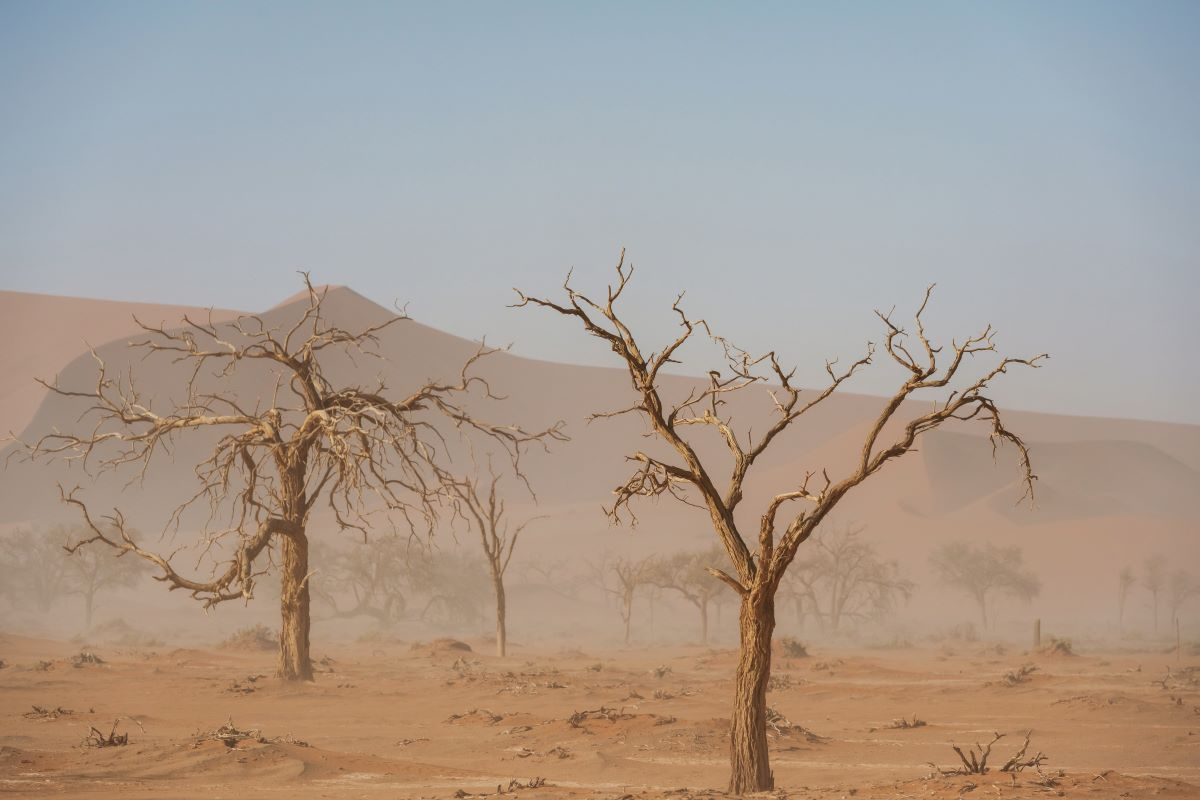This article is also available in Italian / Questo articolo è disponibile anche in italiano
Approximately 15 million km² of land − an area larger than Antarctica − has already been degraded, with an additional one million km² lost each year. This alarming figure lies at the heart of the 16th UN Conference on Desertification, taking place in Riyadh, Saudi Arabia, until the 12th of December. Known as COP16 Desertification, also called the soil COP, the conference seeks to develop new strategies and mobilise resources to halt the destruction and degradation of the planet’s surface, home to the majority of biological life and critical ecosystem services.
Under the auspices of the United Nations Convention to Combat Desertification (UNCCD), 197 countries will work together to exchange solutions and strategies to protect and restore soils, the foundation of our planet's stability. They regulate the climate, safeguard biodiversity, sustain water systems, and supply vital resources such as food and raw materials. Yet, deforestation, urbanisation, and unsustainable agricultural practices are driving soil degradation at an unprecedented rate.
“Healthy land, crucial for providing 95% of our food, clothing, shelter, jobs, and protection from natural disasters, is degrading at an alarming rate,” said AbdulHakim Elwaer, FAO Assistant Director- General and Regional Representative for the Near East and North Africa (NENA) attending COP16. “FAO emphasises the crucial role of restoring degraded agricultural lands to secure future food, feed, fiber, and biofuel supplies. Such restoration not only supports sustainable production but also contributes to biodiversity, carbon sequestration, water retention, and other essential ecosystem services.”
Soil, an insurmountable planetary limit
A key report underpinning the negotiations, alongside the World Drought Atlas, is the latest publication from the Potsdam Institute for Climate Impact Research (PIK), led by Professor Johan Rockström. This work, titled Stepping Back from the Precipice: Transforming Land Management to Stay Within Planetary Boundaries, offers a framework for addressing the escalating global land management crisis. The report delves into planetary boundaries and underscores the critical need for integrated actions to safeguard the Earth's balance.
The concept of planetary boundaries, first outlined in 2009 by Rockström, identifies nine critical thresholds essential for maintaining the Earth's stability. Six of these limits, including climate change and biodiversity loss, have already been breached. Soil management is directly linked to seven of these boundaries, underscoring its pivotal role in ensuring humanity's long-term survival. The report highlights the importance of regenerative agriculture and agroecology. Practices such as forest regeneration, no-till planting, nutrient management, and efficient irrigation can enhance soil health and boost agricultural yields.
Themes of COP16 Desertification
For the first time, COP16 Desertification will adopt a dual approach, comprising a Negotiation Track and an Action Agenda. These interlinked tracks aim to deliver ambitious outcomes in formal negotiations while facilitating the implementation of COP decisions. The Negotiation Track will centre on pivotal COP decisions and policy declarations essential for advancing global land and drought resilience. Meanwhile, the Action Agenda will spotlight voluntary commitments and initiatives on land, resilience, and people's rights, showcased through the thematic days of COP16.
As with biodiversity loss, intensive agriculture is a major driver of soil degradation, responsible for 80% of global deforestation and 70% of freshwater use. Excessive use of nitrogen and phosphorous fertilisers destabilises ecosystems, while unsustainable irrigation practices deplete water resources. There are no binding objectives or clear financial targets on the negotiators' table. Rather, the promotion of joint initiatives to accelerate soil regeneration by 2030; improve drought preparedness, response, and resilience; ensure that land continues to provide nature-based solutions for climate and biodiversity; and increase resilience to growing sand and dust storms. Will this be enough to slow desertification?
There is, however, a long list of actions still to be discussed and financed. Global voluntary commitments to restore degraded land have reached 1 billion hectares by 2030, but this will need to be scaled up. The G20 has backed a global initiative to halve land degradation by 2040, and equitable governance, formalisation of land rights, and corporate transparency remain critical to ensuring sustainable land use. There are plenty of projects led by the United Arab Emirates in the Middle East and Saudi Arabia (which remains a major opponent of climate and plastics negotiations), the host of the COP16 Desertification trying to redefine its environmental credentials.
Another critical issue is the insecurity faced by one billion people lacking formal land property, a challenge that hinders progress toward sustainable management. In many developing countries, local and indigenous communities often lack legal titles to the land they live on and manage, exposing them to land grabbing by unscrupulous economic actors with little recourse to justice.
At COP16 Biodiversity in Cali, Colombia, world leaders formally acknowledged the vital role of indigenous peoples and local communities in sustainable land management. This recognition came with the endorsement of the traditional knowledge indicator on land (HI 22.1) under Target 22, underscoring the intrinsic connection with land security. This critical issue will need to be strongly reinforced at COP16 Desertification. “Fair governance, formalisation of land rights, and corporate transparency are crucial to ensuring sustainable land use,” states a communiqué from the UNCCD Secretariat.
Attention must also focus on poorly designed agricultural subsidies, which surpass 500 billion dollars annually and frequently encourage harmful practices. This objective, shared with the biodiversity negotiations, will require thorough examination both during the Riyadh talks and at COP16 bis in Rome at the end of February, where the work that began in Cali will be concluded. Opposition is expected from agribusiness multinationals and investment funds specialising in land grabbing. Many of these entities, headquartered in Gulf countries, such as the UAE and Kuwait, are trying to guarantee their food sovereignty at the expense of African communities and beyond.
Image: Envato



